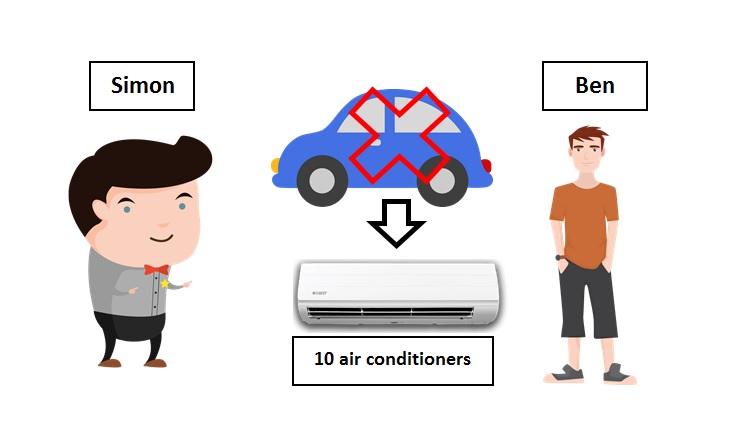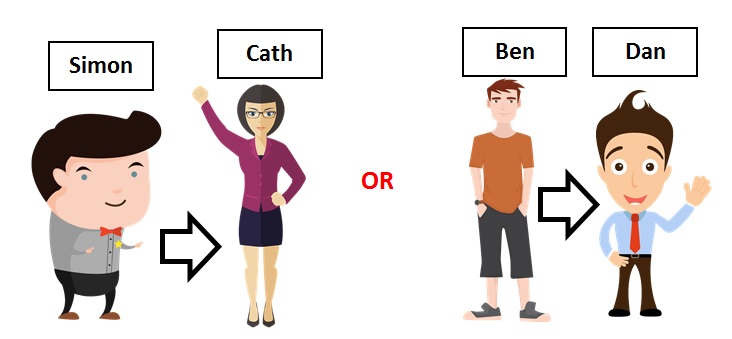Article 1291. Obligations may be modified by:
(1) Changing their object or principal conditions;
(2) Substituting the person of the debtor;
(3) Subrogating a third person in the rights of the creditor.
Artikulo 1291
Ang obligasyon ay maaring mabago ng:
- Pagbabago ng bagay o ng pangunahing kondisyon;
- Paglilipat ng tao ng nangutang;
- Pagpapalit ng ikatatlong tao sa karapatan ng nagutang.
Novation is the total or partial extinction of an obligation through the creation of a new one which substitutes it.
It is the substitution or change of an obligation by another, which extinguishes or modifies the first, either by changing its object or principal conditions, by or substituting another in place of the debtor, or by subrogating a third person in the rights of the creditor.
ILLUSTRATION
 (1) CHANGING THEIR OBJECT OR PRINCIPAL CONDITIONS
(1) CHANGING THEIR OBJECT OR PRINCIPAL CONDITIONS
Simon agreed to deliver to Ben a car. Later, they entered into another contract whereby, instead of Simon delivering a car, he would deliver 10 air conditioners. The obligation to deliver a car is extinguished by the obligation to deliver the 10 air conditioners. The change may involve the principal terms of the obligation.

(2) SUBSTITUTING THE PERSON OF THE DEBTOR
If after the constitution of the obligation, both parties agreed that Cath will substitute for Simon or that Dan will be subrogated in the rights of Ben, there is a personal novation. In this case, Cath becomes the new debtor or Dan, the new creditor as the case may be.
 (3) SUBROGATING A THIRD PERSON IN THE RIGHTS OF THE CREDITOR
(3) SUBROGATING A THIRD PERSON IN THE RIGHTS OF THE CREDITOR
If the agreement of the parties is that Simon will deliver to Dan the 10 air conditioners, instead of Simon delivering a car to Ben, then there is a mixed novation because the object of the obligation and the person of the creditor are changed.
